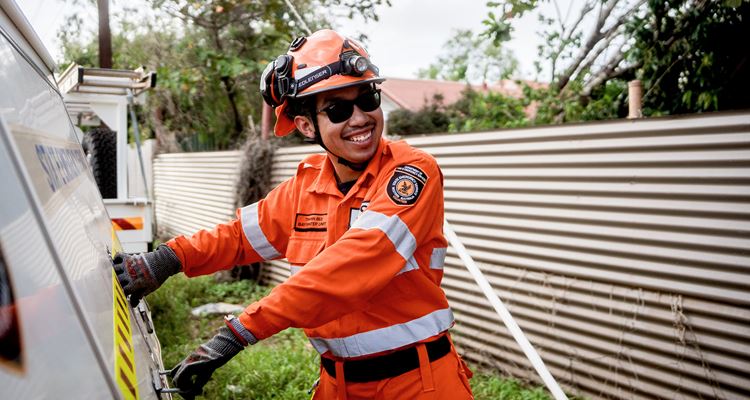El Niño conditions to influence later start to tropical cyclone season

Emergency services are warning communities in the North West not to become complacent amid predictions that El Niño conditions could delay the start of Wet Season and lead to fewer cyclones.
The Bureau of Meteorology will release its 2023-24 Tropical Cyclone Outlook today, confirming the current El Niño and positive Indian Ocean Dipole events are likely to impact the number and timing of cyclonic conditions.
During El Niño, the number of tropical cyclones is often below average, and the first coastal crossing can occur as late as mid-January.
The Bureau is also predicting the first significant rains are likely to be later than usual.
The head of the Bureau's Tropical Cyclone team Andrew Burton said communities in Western Australia are urged to prepare now.
“While the overall number of tropical cyclones is likely to be fewer than usual, Australia has never had a season without at least one tropical cyclone crossing the coast since reliable records began in the early 1970s,” Mr Burton said.
“Across Australia we had a below average number of cyclones impact the coast in the last tropical cyclone season but saw two significant events in Western Australia.
“Tropical Cyclone Ellie was responsible for significant rainfall and flooding impacts in the Kimberley region and Severe Tropical Cyclone Ilsa crossed the coast near the Pardoo Roadhouse as a category 5 system, the most intense cyclone to impact Western Australia in more than a decade.”
Fire and Emergency Services Commissioner Darren Klemm AFSM said communities could become isolated for extended periods of time and it was imperative that people had emergency supplies of water, non-perishable food and other essentials.
“Last season was a stark reminder of how the effects of a cyclone can devastate an entire region – even if they don’t bring destructive winds, the rainfall and subsequent flooding can be equally damaging,” Commissioner Klemm said.
“Severe flooding from Tropical Cyclone Ellie cut off supply routes and people were isolated for an extended period so it’s an absolute necessity for communities in the North West to have surplus essential supplies for the Wet Season.
“Even though the season may start later, don’t leave your preparations to the last minute and get caught short – have an emergency kit ready and enough food and water for at least five days.
“Visit the DFES website for guidance on developing a cyclone plan or preparing an emergency kit with essentials if you need to evacuate, lose power or get cut off from supplies.”
The tropical cyclone season runs from November to April. The Australian region has an average of 11 tropical cyclones each year with an average of 4 crossing the coast.
The full tropical cyclone season long-range forecast 2023–24 will be released on the Bureau's website: Australian tropical cyclone long-range forecast (bom.gov.au)

